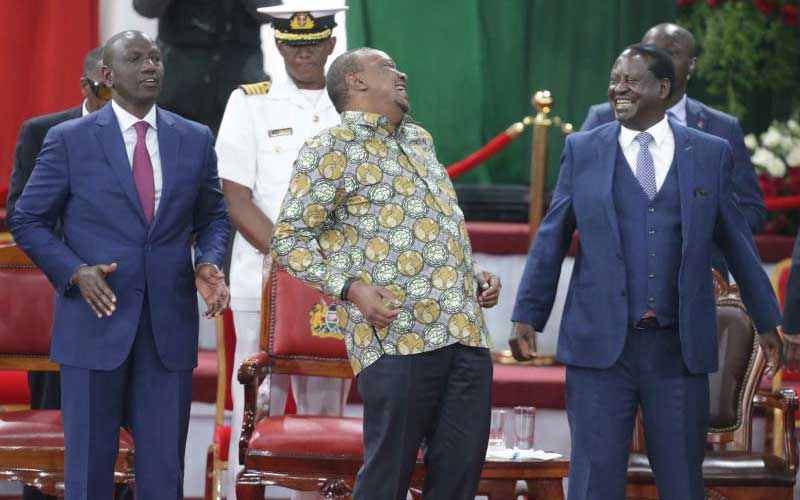×
The Standard e-Paper
Kenya’s Boldest Voice

Orange Democratic Movement leader Raila Odinga is fast emerging as the President’s most trusted point man in politics and public affairs.
Whether in Parliament or public rallies or official functions, Raila is increasingly taking on a leading role in championing President Uhuru Kenyatta’s cause.







